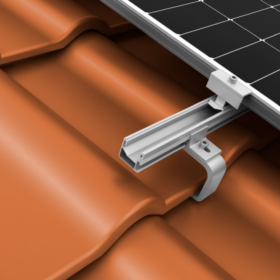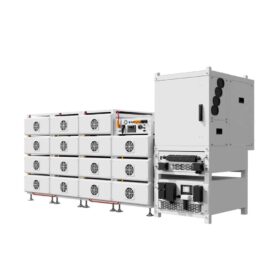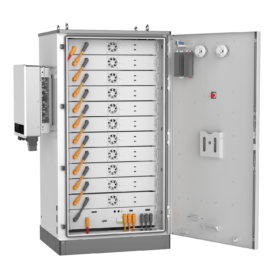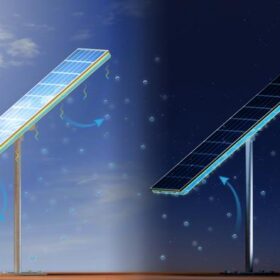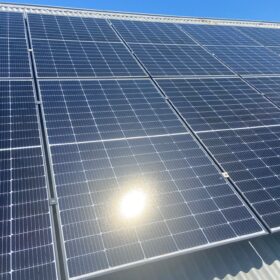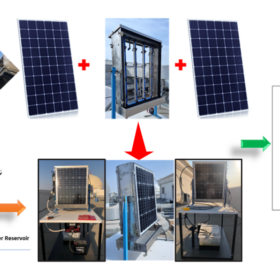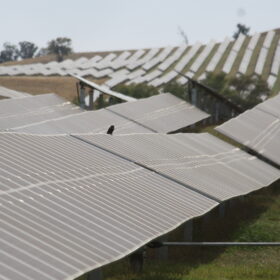K2 Systems unveils new pitched roof mounting solutions
K2 Systems has introduced two new pitched roof mounting components for residential solar: the SingleHook 3S Light, made of aluminum and stainless steel; and the InsertionRail 2.0, an aluminum mounting rail.
Deye launches C&I power conversion system with battery storage
Deye has developed a new power conversion system optimised for solar integration, with modules ranging from 100 kW to 125 kW. The Chinese manufacturer says the PCS supports flexible system design and targets commercial and industrial applications.
How albedo interacts with rooftop PV system patterns
Researchers have simulated 160 cases of PV rooftop installation in southern and northern Italy. Among changing parameters were size and type of the panels, as well as their roof cover rate. The considered albedos were 20%, 40%, 60%, and 80%, representing different types of roof materials.
The best tilt angle to improve PV system performance on low-income housing
Researchers have demonstrated that the theoretical optimal tilt for rooftop solar energy production in low-cost buildings in Nigeria is approximately 5.67°. Their modeling suggests to adopt south-facing roofs for PV generation in the southern hemisphere.
GoodWe releases 112 kWh storage system for C&I solar
GoodWe has launched a 112 kWh battery energy storage system for commercial and industrial solar projects, featuring 96% round-trip efficiency and a 6,000-cycle lifespan. The system allows parallel connection for up to 450 kWh of total capacity.
New cooling gel could raise PV module efficiency by 12%
An international research team has developed a hydrogel composite that absorbs moisture in solar modules overnight and facilitates evaporative cooling throughout daylight hours. The system has undergone lab tests and outdoor experiments on two continents.
Solar electroluminescence image noise filtered by new deep learning method
University of New South Wales researchers have developed a simplified residual network-based architecture method to filter out noise from electroluminescence images of solar modules.
Mist system boosts efficiency of bifacial PV modules
Scientists have placed mist nozzles inside a bifacial PV module and measured it under an extremely hot climate. The module was found to generate up to 37% more electricity on sunny days and up to 46% more on cloudy days compared to standard monofacial panels.
Scientists build photovoltaic-thermal panel hosting four different cooling techs
Researchers from the Middle East have simulated a novel PV thermal module which includes a thermoelectric generator above the absorber layer, conical helical tape in the cooling tube and a ferrofluid. These technologies reportedly contributed to increased PV efficiency and thermal efficiency by 2.12% and 23.34%, respectively.
How to assess bifacial PV system performance on sloped terrains
Scientists have developed a precursor formulation for different PV simulation tools that can help calculate the expected performance of solar farms deployed on hilly slopes. Validation tests against an experimental setup showed an error of less than 3%.
